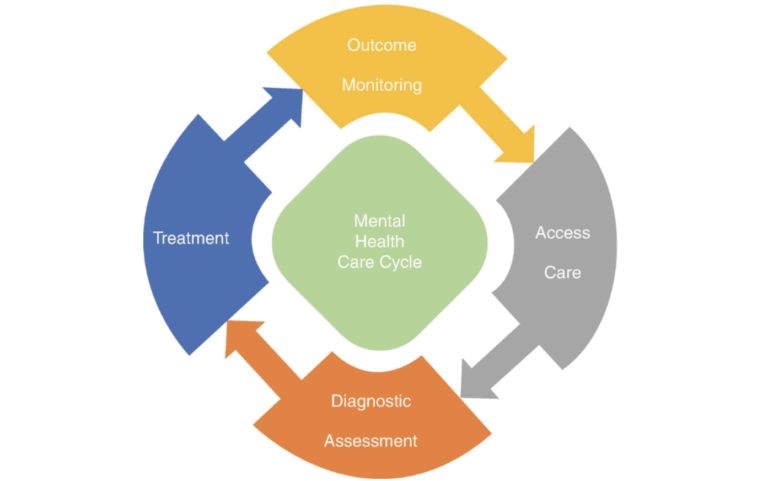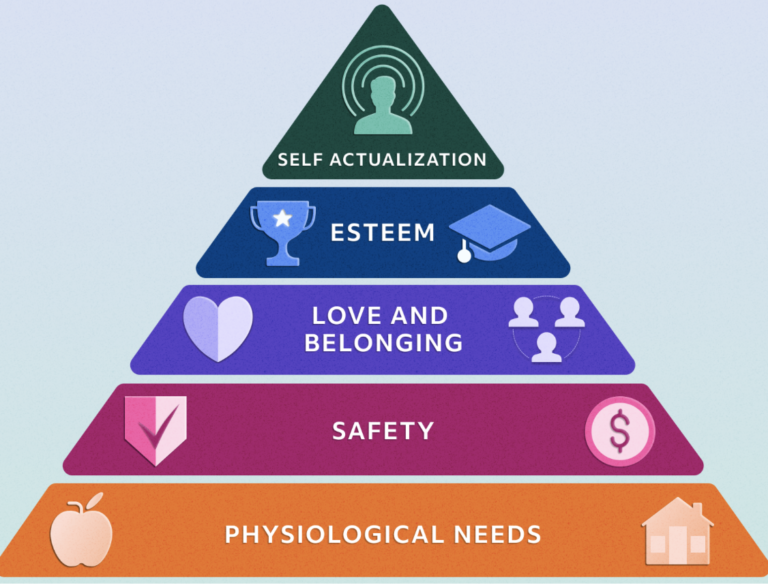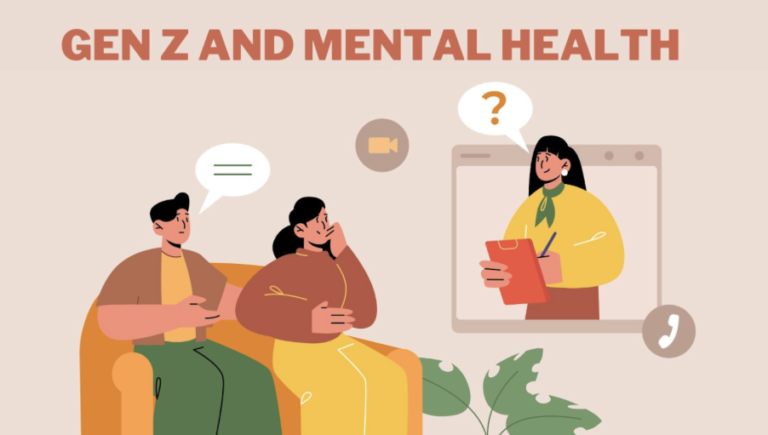Harnessing Gratitude and Reflection for a Healthier Mind
In an increasingly fast-paced world filled with distractions and stressors, the importance of nurturing our mental health has never been…
Phone: +420-608-573-256

In an increasingly fast-paced world filled with distractions and stressors, the importance of nurturing our mental health has never been…

Traveling has long been regarded as one of life’s most enriching experiences. From annual vacations to spontaneous road trips, the…

The relationship between our minds and the environments we inhabit is profound. From the bustling city streets to serene natural…

Mental health is an essential aspect of overall well-being, and in today’s fast-paced world, ensuring we address our mental health…

Valentine’s Day is traditionally associated with romantic love, symbolized by hearts, chocolates, and candlelit dinners. However, love extends beyond romantic…

Valentine’s Day is traditionally associated with romantic love, symbolized by hearts, chocolates, and candlelit dinners. However, love extends beyond romantic…

Human beings are wired for connection. The pursuit of love and meaningful relationships is universal, and the quality of these…

In recent years, the dialogue surrounding mental health has gained significant traction, with younger generations taking the lead in prioritising emotional well-being. The contrast between Generation Z (born approximately 1997-2012) and Millennials (born approximately 1981-1996) reveals profound shifts in attitudes, awareness, and acceptance of mental health issues. Understanding these differences not only sheds light on generational characteristics but also informs how mental health services can be tailored to meet diverse needs.
1. Historical Context of Mental Health Awareness
It is essential to consider each generation’s historical backdrop to appreciate the differences in how Gen Z and Millennials approach mental health.
Millennials grew up during the early rise of the internet and the 9/11 terrorist attacks, shaping a sense of uncertainty and anxiety. Their formative years coincided with heightened awareness of mental health, as discussions began to shift from stigma to acceptance. As a result, Millennials have generally been more open about seeking help compared to previous generations, yet they still struggle with health insurance coverage, affordability, and access to mental health care.
Gen Z is the first generation to be raised entirely in the digital age, experiencing social media as a constant aspect of life. This access to information and connection has also meant that the pressures of online presence, cyberbullying, and the fear of missing out (FOMO) weigh heavily on their mental health. Gen Z tends to advocate for mental health even more fervently than Millennials, viewing it not just as an individual issue but as a societal concern.
2. Attitudes Towards Mental Health
The perception of mental health varies significantly between Gen Z and Millennials, affecting how each generation interacts with the topic.
Openness and Acceptance: Gen Z has been characterized as the most open generation regarding mental health issues. They discuss mental well-being freely and utilize social media as a platform for sharing experiences and seeking support. According to a survey by the American Psychological Association, about 91% of Gen Z respondents reported experiencing physical or emotional symptoms due to stress, but they are also more likely to acknowledge these feelings and seek professional help.
Struggles with Stigma: While Millennials have made strides in combating the stigma associated with mental health, they often still grapple with feelings of inadequacy, particularly in professional realms. Many Millennials were taught to “tough it out” and are more likely to work through mental health issues privately rather than seek assistance actively.
3. Access to Resources and Help-Seeking Behaviors
How each generation accesses mental health resources demonstrates another key area of difference.
Digital Solutions: Gen Z is comfortable navigating online mental health platforms and apps designed for mental wellness. Many in this generation are using therapy apps, online counselling, and social media support groups, leading to a more immediate response to their mental health needs. Studies reveal that Gen Z is significantly more likely to have tried online therapy compared to Millennials, who may prefer face-to-face interactions.
Preference for Therapy: Millennials exhibited a generational trend towards finding therapy acceptable but may have experienced barriers such as costs, lack of available services, and fear of being viewed as weak. In contrast, Gen Z is reshaping this narrative, often advocating for therapy as essential and normalizing frequent check-ins with their mental health.
4. The Role of Social Media
Social media is a double-edged sword in the context of mental health for both generations.
Millennials initially embraced social media as a means to connect but later recognized its potential harm. Many Millennials debate the impact of social media on their self-esteem and mental health, leading them to curate their online presence carefully.
Gen Z, on the other hand, utilizes social media as a crucial platform for advocacy, community building, and education regarding mental health. They engage in discussions that challenge traditional notions of success and happiness, shaping a culture that prioritizes mental wellness.
Conclusion
The evolving narrative surrounding mental health from Millennials to Gen Z highlights a generational shift towards increased awareness, dialogue, and advocacy. While Millennials laid the groundwork for discussions on mental well-being, Gen Z is amplifying the conversation and pressing for systemic change. Each generation’s unique experiences and challenges inform their approach to mental health, ultimately leading to a more collaborative and understanding environment. As society continues to progress, acknowledging these differences will be crucial in developing effective mental health resources that resonate with each generation. As we look forward, it becomes increasingly evident that understanding these generational perspectives will be pivotal in improving mental health outcomes for all.

The Czech Republic has a deep-rooted beer culture, with a long history of brewing and some of the highest per capita beer consumption globally. Beer is more than just a beverage—it’s a staple of social life, commonly enjoyed in pubs, restaurants, and gatherings.
As the new year begins, many people set resolutions focused on self-improvement, health, and well-being. While Dry January is widely recognized globally, the Czech Republic observes Dry February—or Suchý únor in Czech—a campaign that encourages a month-long break from alcohol to promote healthier habits and raise awareness of excessive consumption.
Recently, Dry February has gained momentum, with hundreds of thousands of Czechs participating. Many find that after 28 days, they continue with a more mindful approach to drinking. The campaign’s timing is no coincidence—its name’s catchy rhyme, the avoidance of New Year’s resolution fatigue, and February’s shorter length make the challenge feel more achievable.
While the physical benefits—such as improved liver function and weight management—are well known, the mental health impacts are equally significant. This article explores how taking a break from alcohol can enhance mood, cognitive function, and overall emotional well-being.
Enhanced Mood and Emotional Stability
One of the most notable mental health benefits of abstaining from alcohol is improved mood and emotional regulation. Frequent alcohol consumption is linked to mood swings, anxiety, and depressive symptoms. Abstaining for a month can lead to several beneficial changes:
Reduced Anxiety Levels: While alcohol initially creates a sense of relaxation, it can increase anxiety in the long run. Avoiding alcohol often results in a calmer state and a more stable emotional baseline.
Improved Mood Stability: Alcohol impacts neurotransmitter systems that are responsible for mood regulation. Those who refrain from drinking often report fewer mood fluctuations and a more positive outlook.
Heightened Sense of Wellbeing: Participants frequently describe a sense of clarity and contentment, which aligns with studies showing that abstainers report higher wellbeing scores.
Increased Self-Esteem and Confidence
Abstaining from alcohol fosters self-reflection and personal growth, promoting higher self-esteem and confidence through several mechanisms:
Achieving Goals: Completing Dry February serves as a tangible achievement that boosts self-esteem and reinforces a sense of competence and control.
Better Decision-Making: Without alcohol clouding judgment, individuals make decisions more aligned with their goals and values, enhancing a sense of agency and well-being.
Improved Relationships: Increased clarity and focus can strengthen relationships with friends and family, enhancing communication and reducing conflict.
Enhanced Sleep Quality and Cognitive Function
Avoiding alcohol during Dry February can significantly improve sleep quality and cognitive function, both essential for mental health:
Better Sleep Patterns: Alcohol disrupts sleep cycles, leading to less restorative sleep. Many participants reported more restful nights and increased daytime energy.
Cognitive Clarity: Without the sedative effects of alcohol, concentration, memory, and problem-solving skills improve, leading to greater productivity and creativity.
Emotional Resilience: Quality sleep and improved cognitive function contribute to stronger emotional resilience, helping individuals manage stress and challenges more effectively.
Opportunities for Healthy Coping Mechanisms
Dry February encourages individuals to explore healthier coping mechanisms that can replace alcohol reliance, leading to numerous benefits:
Mindfulness Practices: Many turn to mindfulness practices such as meditation or yoga, which reduce stress and promote emotional well-being.
Physical Activity: Abstaining from alcohol often motivates individuals to exercise, which releases endorphins that improve mood and reduce symptoms of anxiety and depression.
Social Connections: Choosing alcohol-free events fosters relationships based on shared interests rather than drinking habits, creating supportive networks and reducing feelings of isolation.
Key Takeaways
Dry February’s impact goes beyond 28 days—it often sparks lasting changes in mental clarity, emotional resilience, and overall well-being. Many participants report improved mood, sharper cognitive function, and healthier coping mechanisms that extend well past the challenge. More than just a break from alcohol, this month serves as a powerful reset, encouraging individuals to prioritize their mental health and embrace a more balanced, fulfilling lifestyle.

Experiencing layoffs can be an exceptionally difficult and upsetting situation for those impacted. It not only leads to the loss of a job but also greatly affects an individual’s mental and emotional health. This guide offers professional insights on how to cope psychologically with layoffs.
1. Accept your feelings: The initial step in managing layoffs is recognizing and embracing your emotions. It’s completely normal to experience a wide array of feelings like anger, sorrow, anxiety, or even relief. Allow yourself to feel these emotions while understanding they are typical reactions to such challenging circumstances.
2. Seek support: In tough times, it’s vital to rely on your support system. Reach out to family members, friends, or coworkers who have faced similar challenges before. They can offer compassion, advice, and create a safe environment for you to share how you feel.
3. Prioritize physical well-being: Losing a job often deeply influences our physical health as well. Strive for a balanced lifestyle by ensuring adequate sleep, consuming wholesome meals, and committing to regular exercise. Caring for your body can enhance mental strength during this time.
4. Allow space for mourning: Job loss may resemble other profound losses in life—like grieving the death of someone close or experiencing the end of a relationship—meaning it’s essential that you grieve accordingly and process what has occurred; remember that this involves more than just losing employment—it impacts core aspects of your identity too.
5. Reassess career ambitions: This might present an opportune moment to reconsider where you’re headed professionally and establish new objectives for yourself moving forward. Take some time reflecting on aspects of your previous role that brought you satisfaction—and contemplate future aspirations—to instill purpose during this transition period.
6. Focus on self-development: Utilize being unemployed as an opportunity for skill enhancement or learning new competencies altogether! You might consider enrolling in online courses, participating in workshops publicly available resources that could boost both competence levels—in turn elevating confidence as well—as prospects when seeking future work opportunities!
7.Set up daily structure : Creating everyday routines lends stability & organization back into life amidst uncertainty ! Designate dedicated segments each day towards exploration towards possible employment avenues combined alongside networking endeavors including pursuits geared toward further personal growth& leisure activities which nourish oneself . Maintaining consistent schedule nurtures motivation enabling better focus throughout searches ..
8.Cultivate Wellbeing through self-care practices: Identify pleasurable hobbies enjoy spending quality moments connected nature cultivates inner peace promotes relaxation while engaging joyful ventures glimpses joy devoting energy uplifting soul—instead find ways recharge!!
9.Seek help from professionals if necessary seek therapy/counseling sessions designed aid coping mechanisms navigate complexities related emotionally draining experiences presented here w/a trusted individual capable listening offering guidance safe ground delve deeper processes encountered now going forth assuredly fulfilling life once again someday soon
Ultimately understanding healing takes –different journeys exist among individuals alike therefore show gentleness encourage personal patience navigating those trying seasons experienced along way!!
End of content
End of content